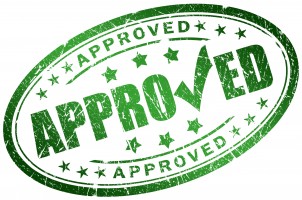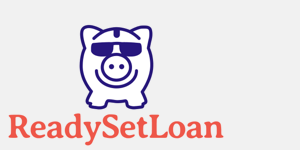 We have been working with a lovely couple in Connecticut to get their condominium approved with FHA so that they can obtain a reverse mortgage. The Board has been reluctant to provide the necessary information to us and it recently surfaced as to why this is. They have concerns that once the condominium is approved by FHA, the Federal Government will have the power to dictate how the condominium is run.
We have been working with a lovely couple in Connecticut to get their condominium approved with FHA so that they can obtain a reverse mortgage. The Board has been reluctant to provide the necessary information to us and it recently surfaced as to why this is. They have concerns that once the condominium is approved by FHA, the Federal Government will have the power to dictate how the condominium is run.
The couple asked us to compose an email that they could present to the Board that might allay the fears of the members. The content of this email follows…
Thank you for your contact today. I can understand the Board’s apprehension regarding getting your condominium approved for FHA loans but I can assure you that this is due to misunderstanding.
The Federal Housing Administration (FHA) is housed within the U.S. Department of Housing and Urban Development (HUD). HUD has many departments within it including special help for folks with low to moderate income levels. It provides Section 8 housing for these folks. However, FHA is not part of this program and borrowers who use FHA loans are not subsidized by the government and have to qualify for the payment of the loan based on their merits. The standards for FHA loans are nearly the same as for the so-called “conventional” loans of Fannie Mae and Freddie Mac. FHA is also the sole provider of Reverse Mortgages, which you are now seeking.
FHA is not a lender; rather, it is a mortgage insurer. When a borrower contributes less than 20% to a purchase of a home, the lender requires some sort of mortgage insurance. In the conventional world of Fannie Mae and Freddie Mac, the insurance for these loans is provided by third party insurance companies such as MGIC and PMI. When a borrower uses an FHA loan, FHA insures the loan to the lender in the case of borrower default. If the lender has to foreclose on the loan and acquires title to the property, the title then transfers to the Secretary of HUD and the FHA insurance fund will pay the lender for any monetary losses that the lender suffered as a result of the foreclosure.
For condominiums, FHA has a requirement that the entire condominium project first obtain approval from HUD to verify that it meets the requirements of the Federal Code of Regulations that established the guidelines for FHA loans and acceptable property types (24 CFR 203). HUD Mortgagee Letter 09-46b established the requirement for project approval and eliminated the “Spot Loan Approval” process. Prior to 2/1/2010, FHA would allow loans in condominium projects that were not on the approved list on a “spot loan” basis. Now all condominiums must be on the FHA Approved Condominiums List if FHA loans are to be allowed to encumber any units in the project.
 Obtaining an FHA Project Approval is what allows unit owners and unit purchasers to finance their units with FHA loans. It is a “stamp of approval” that the condominium project meets the minimum requirements. Once approved, neither HUD nor FHA has any ability to control what happens within the community. If the condominium decides to make rules, amend its legal documents or make other internal changes that violate HUD’s guidelines, the community would lose its approval and no longer qualify for FHA loans. Neither FHA nor HUD would have any power to block the association’s decisions to do so.
Obtaining an FHA Project Approval is what allows unit owners and unit purchasers to finance their units with FHA loans. It is a “stamp of approval” that the condominium project meets the minimum requirements. Once approved, neither HUD nor FHA has any ability to control what happens within the community. If the condominium decides to make rules, amend its legal documents or make other internal changes that violate HUD’s guidelines, the community would lose its approval and no longer qualify for FHA loans. Neither FHA nor HUD would have any power to block the association’s decisions to do so.
If a unit is encumbered with FHA financing, FHA has no control over the goings on of the condominium unless the borrower defaults and the title of the unit transfers to the Secretary of HUD, as mentioned above. If this were to happen, HUD would then become a UNIT OWNER and potentially have voting rights within the condominium but subject to the limitations a laid out in the Declaration and By-laws. HUD would have no powers beyond that of a UNIT OWNER and would have the percentage of ownership interest in the common elements as dictated by the legal governing documents.
Many believe that FHA loans are for low- to moderate-income buyers (as mentioned above) which is a myth. FHA borrowers must meet underwriting criteria that are nearly as strict as conventional loans. The benefit of using an FHA is the ability for a low downpayment of 3.5%. This would not affect the condominium because of the property values of the units. I say this because the maximum FHA loan amount in your county is $601,450. This would mean that for a buyer to purchase a $1,000,000 unit in your condominium, he/she would have to make a $398,550 down payment to use an FHA loan.
The reason we are working diligently to get the condominium approved with FHA is to allow the availability for FHA Reverse Mortgages to those who already reside in the community. An FHA Reverse Mortgage will allow the unit owner to utilize the equity in his/her unit and will not require the owner to make monthly payments. A great facet of Reverse Mortgages is that if the unit faces a negative equity position, FHA, not the owner’s heirs or the condominium, will make up the deficiency with the lender.
I hope that this provides some insight as to FHA, HUD and the project approval that we are seeking for your condominium.
Please let me know if you have any further questions.
Hopefully this will clear things up for the Board!
Top Photo Credit: (c) freedigitalphotos.net / iosphere
Lower Photo Credit: (c) Can Stock Photo / arcady






